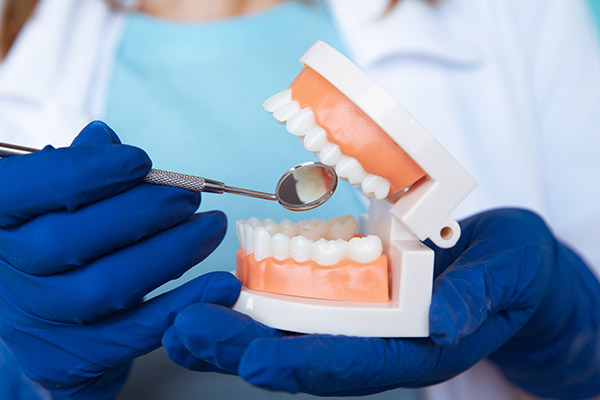 Dental bonding uses composite resin materials to correct cosmetic imperfections in your smile. Whether you have a chip or want to close a gap, this service can help restore a complete, well-functioning smile. With proper care, dental bonding can last up to ten or as little as three years. Consider these tips to help you make the restoration last longer.
Dental bonding uses composite resin materials to correct cosmetic imperfections in your smile. Whether you have a chip or want to close a gap, this service can help restore a complete, well-functioning smile. With proper care, dental bonding can last up to ten or as little as three years. Consider these tips to help you make the restoration last longer.
Avoid certain foods
While dental bonding is incredibly durable and meant to help the teeth function as normal, patients should still avoid using the tooth or teeth with the bonding to break down incredibly hard food. This is largely because the composite resin material does not require shaving down the enamel for bonding. Additionally, the material can become worn through constant intake of acidic foods and drinks. Therefore, the following foods may result in damage or cause the dental bonding to become lost:
- Citric juices
- Corn nuts
- Gummy or sticky snacks
- Lemons
- Nuts
- Popcorn kernels
Avoid using the teeth as a tool
It is common for people to want to use their teeth as a tool to open things like packages or bottles. Some may even use them to mindlessly chew on inedible objects, like pens or their fingernails. The composite resin material can withstand biting forces for normal foods with a certain level of firmness. However, patients should consider quitting this habit altogether, as even natural enamel can sustain damage from it.
Wearing mouthguard
Mouthguards are ideal for those who play sports that may result in potential mouth hits. While dental bonding may withstand some level of sudden force, it may be different for every sport. Sports mouthguards can cushion blows to the mouth, protecting the restorative and natural teeth.
Furthermore, if a patient grinds or clenches their teeth, likely under stress or while sleeping, this action can wear down the bonding material and natural teeth. In turn, this can cause pain, sensitivity, and general discomfort. Thus, purchasing a simple mouthguard for daily or nightly wear can prevent these side effects from occurring.
Proper oral hygiene practices
Even though the dental bonding material is closely matched to the color of the patient's natural teeth, it can still stain if not properly cared for. Additionally, the natural teeth can still develop decay or disease. Therefore, patients must ensure they keep up with proper oral hygiene routines. As it goes, patients should brush twice a day, floss once a day, and use an antibacterial (non-alcohol) mouth rinse once a day to ensure the rest of the mouth, especially the host tooth, remains healthy and intact.
Maintain biannual dental appointments
The best way to ensure dental bonding is holding up well is to maintain biannual dental appointments, as recommended by the American Dental Association, or ADA. During these appointments, the dentist will perform a physical examination in addition to professional cleaning, checking the entire mouth for abnormalities. They will also ensure the bonding material is holding strong and does not need touch-ups.
Restore your smile
Dental bonding can help bridge gaps, repair chips, and complete a decay treatment. If you are interested in restoring your smile protection, look, and function, contact our Turlock office by calling 209-585-1474 today. Our team can assist you with any questions you may have.
Request an appointment or call King Dentistry at 209-585-1474 for an appointment in our Turlock office.
Recent Posts
Dental bonding offers a quick, conservative way to repair chips, close small gaps, and lift stains without removing much natural enamel. It blends in with surrounding teeth for a natural look and comfortable feel. Because it uses tooth-colored resin, the dentist can shape, smooth, and polish it during a single visit in many cases. With…
Dental bonding may be the most versatile tool a general dentist can use to improve the smile's appearance. Of all the cosmetic dental treatments, one could argue that dental bonding has the widest range of uses. If you are considering dental bonding to improve the overall look of your smile, it may be the only…
Dental bonding utilizes resin compounds to create a new tooth surface, potentially covering blemishes and other imperfections. However, bonding can be used for more than just hiding stains. Many dentists use it for a wide range of issues due to its many benefits, including its simplicity, adaptability, and price accessibility for most patients.Dental bonding has…


